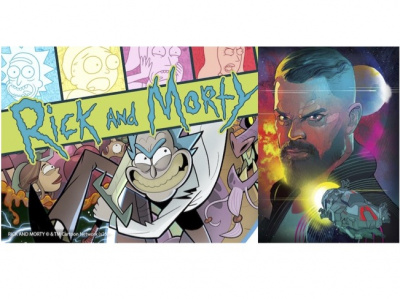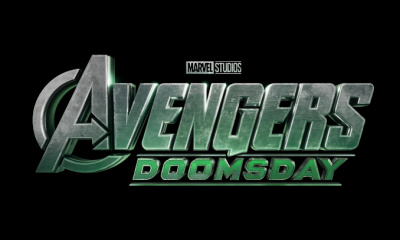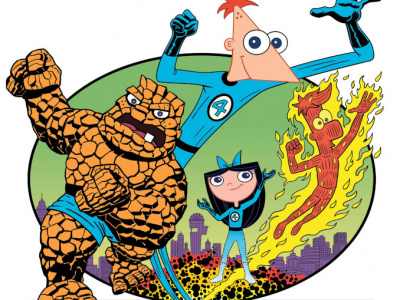 It’s been a busy weekend in the Amazon executive suites, as it mounts a growing public relations offensive against Hachette and takes down pre-order buttons for some Disney home video products, including Marvel DVDs and Blu-rays. Meanwhile, a coalition of over 900 authors ran a two-page ad in the national edition of the Sunday New York Times urging readers to send Amazon CEO Jeff Bezos emails expressing their dissatisfaction with Amazon’s stance toward Hachette, which is hurting sales on authors caught in the crossfire.
It’s been a busy weekend in the Amazon executive suites, as it mounts a growing public relations offensive against Hachette and takes down pre-order buttons for some Disney home video products, including Marvel DVDs and Blu-rays. Meanwhile, a coalition of over 900 authors ran a two-page ad in the national edition of the Sunday New York Times urging readers to send Amazon CEO Jeff Bezos emails expressing their dissatisfaction with Amazon’s stance toward Hachette, which is hurting sales on authors caught in the crossfire. Amazon kicked things off with a pre-emptive strike, a post on a site named "Readers United," a play on the name of the Authors United group Amazon knew was going to run an ad in the Times this weekend. In it, the company made its argument for lower e-book prices, the issue it says motivates its war with Hachette. In addition to arguments it has made previously that ebook revenue goes up when retail prices go down (see "Amazon-Hachette Fight Over Prices"), it points out Hachette’s involvement in the antitrust case with Apple over ebook pricing, or as Amazon puts it, "Hachette has already been caught illegally colluding with its competitors to raise e-book prices."
Amazon hurt its cause in using a comment by George Orwell about the then-new mass market paperback book in a way that twisted his meaning. "The famous author George Orwell came out publicly and said about the new paperback format, if ‘publishers had any sense, they would combine against them and suppress them,’” the Amazon post said. "Yes, George Orwell was suggesting collusion," it continued, comparing the paperback book to the e-book, arguing that like paperbacks were 100 years ago, e-books are now being resisted by those tied to the formats of the past.
But the New York Times quickly pointed out that Amazon’s assertion on Orwell’s meaning was a bit of a stretch when the full quote was read. "The Penguin Books are splendid value for sixpence, so splendid that if the other publishers had any sense they would combine against them and suppress them," Orwell wrote, according to the Times.
The Times also summarizes Orwell’s predictions of the impact of the cheaper format on the different constituencies. "This is an advantage from the reader’s point of view and doesn’t hurt trade as a whole, but for the publisher, the compositor, the author and the bookseller, it is a disaster," he wrote.
Amazon wrapped up its appeal by urging readers to send an e-mail to Hachette CEO Michael Pietsch, providing an email address, and suggesting talking points:
- We have noted your illegal collusion. Please stop working so hard to overcharge for ebooks. They can and should be less expensive.
- Lowering e-book prices will help — not hurt — the reading culture, just like paperbacks did.
- Stop using your authors as leverage and accept one of Amazon's offers to take them out of the middle.
- Especially if you're an author yourself: Remind them that authors are not united on this issue.
The Authors United ad in the New York Times, the impact of which the Amazon appeal was designed to blunt, was written by Hachette author Douglas Preston. He wrote it as an open letter to his readers, but it grew into something bigger, and ended up with over 900 authors publicly supporting it, including James Patterson (whose Yen manga adaptations, like his other Hachette titles, are being negatively impacted by the Amazon tactics), Michael Chabon, and John Grisham. The statement asks for Amazon to quit using tactics that end up hurting sales on Hachette authors’ books, "without taking sides on the contractual dispute between Hachette and Amazon."
The statement and ad further suggest that readers email Amazon CEO Jeff Bezos (providing his address) to "tell him what you think."
Now in the midst of this very public battle with one of its largest book suppliers, Amazon has gone public in a dispute with Walt Disney Studios Home Entertainment by removing preorder buttons for almost all of the company’s major disc releases. On some, including Captain America: The Winter Soldier, Amazon does not list the disc releases at all, although it’s still taking preorders on the download-to-own version. Amazon has not yet deployed some of the other strategies it’s using in its dispute with Hachette, including delaying delivery of in-stock titles.
Amazon recently went through a similar dispute with Warner Home Video (including distribution client VIZ Media), in which it removed preorder buttons on the company’s video releases for several weeks. That dispute was eventually settled (see "Amazon Supplier Wars Update").







